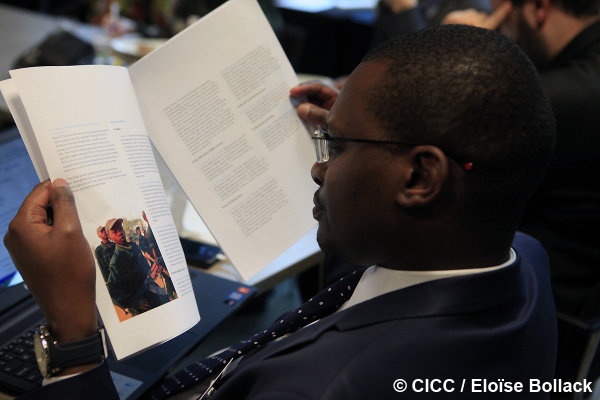Civil society organisations have blamed the International Criminal Court (ICC) for succumbing to political pressure and recommend that it should be restructured. The African Centre for Open Governance (Africog) and Kenyans for Peace with Truth and Justice (KPTJ) said in their report that it was mistake to allow President Uhuru Kenyatta and his deputy William Ruto to run for office when they facing criminal charges at the ICC. The report was published to coincide with the ongoing ICC Assembly of State Parties (ASP) at The Hague. The report, Impunity restored?
Lessons learned from the failure of the Kenyan cases at the ICC, took stock of cases involving Kenyans in the ICC. Domestic politics “As a matter of Kenya’s constitutional law, Uhuru Kenyatta and William Ruto, should not — as individuals facing the most serious charges known to law — have been able to run for president and deputy president of a country that is a member of the ICC,” the report said. It noted that after their election, the pair were able to use the instruments of State power “to obstruct all attempts by the Office of the Prosecutor to collect evidence from State agencies in Kenya.” The Office of the Attorney General in effect acted as counsel for the accused, rather than a State Law Office, the report noted. “Being the president and deputy president, the two accused were able to use the machinery of the State to identify and then target witnesses; to compromise them, to intimidate them.”
On September 19, ICC’s trial chamber confirmed that Kenya had not complied with its obligations to co-operate with the court and referred the matter to the ASP. It was noted that the court was vulnerable to domestic politics and international diplomacy. According to the authors of the report, propaganda was used to “first, to outflank and second, to diplomatically undermine both the Office of the Prosecutor and the Court.” The report says it is probable that the decision by the court to excuse both Kenyatta and Ruto from continuous presence at trial was a concession to AU pressure. African countries were accused of hypocrisy, because although they were opposed to the court handling their cases, it is these nations that had referred these cases to the court.
Africog and KPTJ said it was Ruto who coined and popularised the incantation: ‘Don’t be vague, let’s go to The Hague’. “Even more interesting is that Jean Ping, who was declared to have lost the presidential election in Gabon resulting in the violence that led to the request for the ICC to intervene, is a former chairperson of the AU Commission.” “He vehemently opposed ICC investigations in Africa when he was at the AU but now supports the call for the ICC to investigate alleged atrocities committed in Gabon. This clearly shows that what African states seek in the ICC is a court that will be at their disposal when it suits them, but that they will demonise and undermine it when it does not,” the report said.
The report also teared into the work of prosecution, saying it could have done a much better job in the Kenya cases. It blamed the prosecutor for failing to realise that those charged would try to obstruct ICC’s investigations. “Former ICC Prosecutor Louis Moreno Ocampo failed to appreciate the political realities of Kenya. In the haste to prosecute the ‘big-fish’ Ocampo failed to grasp the incestuous links, and the mendacity of Kenya’s political elite,” it says. The ICC was accused of failing to assist victims of the violence in Kenya. The report comes at a time when over 200 civil society organisations have written to Presidents of African State Parties asking them not to withdraw from the ICC. The letter endorsed by six Kenyan organisations—including KPTJ and Africog—comes hot on heels of notices by South Africa, Burundi and Gambia to pull out of the ICC
Read more at: http://www.standardmedia.co.ke/article/2000224072/harsh-verdict-delivered-ag
